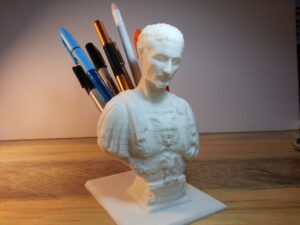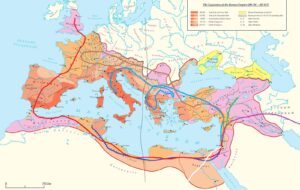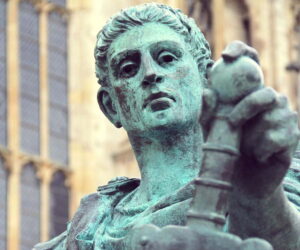Okay, so, pretty much everyone knows what Rome was, that it was originally a Republic and then Caesar took control and got stabbed on March 15 and there was a war and Augustus took over and then it was an Empire. We all know that Rome dominated much of the known world at that era, having taken control of most of the Mediterranean, north Africa, the Iberian peninsula, and the Hellenic world of Greece and the Holy Lands in Asia Minor. We all know about Augustus or Tiberias doing a census, Mary and Joseph going to Bethlehem, Jesus being born, His growing up in Judea, His earthly ministry, and His death and resurrection followed by His ascension and the descent of the Holy Spirit.

Still with me? Good.
We all pretty much know that after Pentecost, the Apostles went around evangelizing and founding churches. Peter founded the churches in Alexandria, Antioch (with Paul), and Rome. Jerusalem had a church from the beginning and it was run by James the Less. Paul went to the Gentiles and spread word of the Word around Greece founding churches in Ephesus, Smyrna, Pergamum, Thyatira, Sardis, Philadelphia, Laodicea, Colossae, and Hieropolis — among others. Andrew went to the Scythians, James the Greater headed out to Spain, Philip and Bartholomew hung around in Greece with Paul for the most part, Thomas went to Babylon and then on to Persia and India, Matthew headed out to Egypt and Ethiopia, Jude went to Syria and to Armenia with Matthias, and Simon the Zealot headed out towards Carthage and then up to Britain. From the mid-30s to the mid-90s of the first century, the Gospels and Epistles were written with Revelation being the last one in the 90s.

During the first century, Christianity was just assumed to be another branch of Judaism by the Romans and since the Romans had finally come to terms with the Jews following a whole lot of revolts and riots and bloodshed
So, much of the first, second, and third centuries AD saw periodic persecutions of Christians (some Emperors were more chill than others). These centuries also saw a lot of Christian writings being penned. Out of these years we get things like The Didache, Polycarp’s letters, Ignatius of Antioch’s letters, Irenaeus’s writings like Against Heresy, and Tertullian’s Apologies. However, we also get a lot of garbage out of these centuries like the Gnostic gospels (“ooh, lookit me, I have spechul, sekret knowledge and you have to do what I say before God will whisper it to you” make up the vast majority of this dreck which I had to read while working on my MA. It doesn’t even rise to the level of good fanfiction like what Milton and Dante would later write). We also get a lot of heresies out of this era like Arianism.

As Christianity spread throughout the Roman Empire and to parts beyond, it started to be a movement to be reckoned with. The emphasis on charity and helping the community wasn’t something found in the Roman (pagan) religion. I mean, Jupiter the Best and the Greatest at everything but keeping his libido under control didn’t exactly tell his followers “hey, build some hospitals and schools.” 😉 Even Apollo seems to have been too busy chasing random nymphs to have told his followers to build the odd doctor’s office (and he was the god of healing… among other things). But Christians built schools and taught the beginnings of literacy. They donated to help the poor. They tried to help heal the sick through prayer and through providing spaces for people to be nursed through their ailments. So, eventually Christianity caught the eye of this one guy. I mean, he wasn’t anyone super important. He was just an army dude.

His name? Constantine. Flavius Valerius Constantinus. And he was getting ready to throw down with Maxentius at a little place known as “Milvian Bridge.”
But we’ll get to him next time.
— G.K.
[1] With the Jews, the Romans finally stumbled across a people who they couldn’t subsume their gods into the Roman pantheon with the whole “oh, yeah, that god? Totally Jupiter,” shtick. So, when the Jews wouldn’t make sacrifices to Jupiter the Best and the Greatest (at everything except being faithful to his wife) for the Emperor, the Romans assumed they were rebelling and Bad Times Ensued until they and the Jews settled for sacrifices being made on behalf of the Emperor to the Jewish God (who was not Jupiter the Best and the Greatest at everything except keeping it in his pants).














